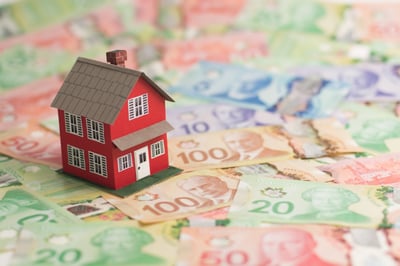What Is Home Equity?




Home equity is the difference between the value of your home and the debt remaining on your mortgage.
Equity increases when you make a mortgage payment. Your equity may also increase if the value of your home increases.
On the flip side of things, your home equity could decrease if property values drop or if you refinance your mortgage to borrow more money.
Is it time to tap into your equity?
One way to do that is by refinancing. Compare mortgage refinance rates to understand the options available.
How to calculate your home equity
Your down payment represents your initial equity in your home. Let’s say you purchased a home for $400,000 with a 20% down payment, or $80,000. That means your outstanding mortgage is $320,000. Your home equity is:
$400,000 (home value) – $320,000 (outstanding mortgage) = $80,000 (home equity)
As you make mortgage payments, your equity grows.
Home equity doesn’t only refer to the amount you’ve paid off on your mortgage. It also includes any property value increases. During a hot housing market, you could see your equity grow quickly. The reverse is true, as well: If real estate prices fall, your equity drops with it.
Uses of home equity
Whenever you sell your home, built-up equity is generally the amount of cash you’ll walk away with — to use in the purchase of a new home or otherwise.
You can also tap into your equity without selling by using products like a home equity loan or home equity line of credit. A benefit of these types of second mortgages is that lenders will loan you money at lower rates than credit cards or unsecured personal loans. What you do with that money is up to you, but home equity is one way to finance home renovations, purchase an investment property or pay for your kids’ post-secondary education.
One risk of using a home equity loan or HELOC is that you put your house up as collateral — if you don’t meet the loan’s repayment terms, you could lose your house.
Type of loan | Summary | Loan details |
|---|---|---|
Home equity loan | A second mortgage that’s secured by your home. You’ll receive a lump-sum amount that you repay over time. | Borrow up to 80% of your home’s appraised value minus the amount remaining on your original mortgage |
Home equity line of credit | A form of revolving credit, similar to a credit card, only it’s secured by your house. Once approved, you can borrow any amount, under the credit limit, whenever you want. | Generally, borrow between 65% and 80% of your home’s appraised value minus the amount remaining on your original mortgage. There are interest-only repayment minimums. The rate is always variable. |
Reverse mortgage | A way to tap into your home’s value without making monthly payments. You must be 55 or older. | Borrow up to 55% of your home’s equity. You don’t need to make any payments on the loan until you sell the property or die, in which case your estate would pay off the reverse mortgage. |
Blended mortgage | People often use blended mortgages to take advantage of dropping rates. If you refinance your mortgage this way, some lenders let you access equity at the same time. | Combine the rate from your existing mortgage with the rate from a new mortgage. If you plan to take out equity at the same time, it can be more efficient to combine these two processes under a single transaction. |
Cash-back mortgage | Refinance your existing mortgage for more than what you currently owe on it. You then “cash out” the difference between your existing mortgage and your new amount owing. | Up to 80% of your home’s appraised value minus the amount remaining on your original mortgage. |
How to grow your home equity
An amortization table — the list of projected payments needed to pay off your mortgage — might suggest that home equity grows in a predictable fashion. The reality is more complex. Multiple factors affect your home equity, and not all are under your control. Your home equity can grow when you:
Pay your mortgage. You’re in the driver’s seat for this one. When you make your monthly mortgage payments, your debt shrinks and your share of ownership grows.
Make additional mortgage payments. Speed up the repayment process by making extra payments toward your principal. You can add a set amount to each month’s payment, or you can make periodic payments when you have extra funds. Check your mortgage agreement before making an additional payment, though: Some lenders charge prepayment penalties if you overpay. Keep in mind that if you increase your payments, you may not be able to lower them again until the end of the term, so be sure the higher amount is sustainable for your budget.
Increase the value of your home. Renovations and improvements can boost the value of your home. Renovations can be expensive, though, and your home’s value won’t necessarily increase by the amount you spend.
Wait for home values in your area to increase. The value of your home can increase, even if you don’t do anything, simply because other people are willing to pay more for it. If prices drop, however, your equity goes with it.
DIVE EVEN DEEPER


 Kurt Woock
Kurt Woock
 Clay Jarvis
Clay Jarvis